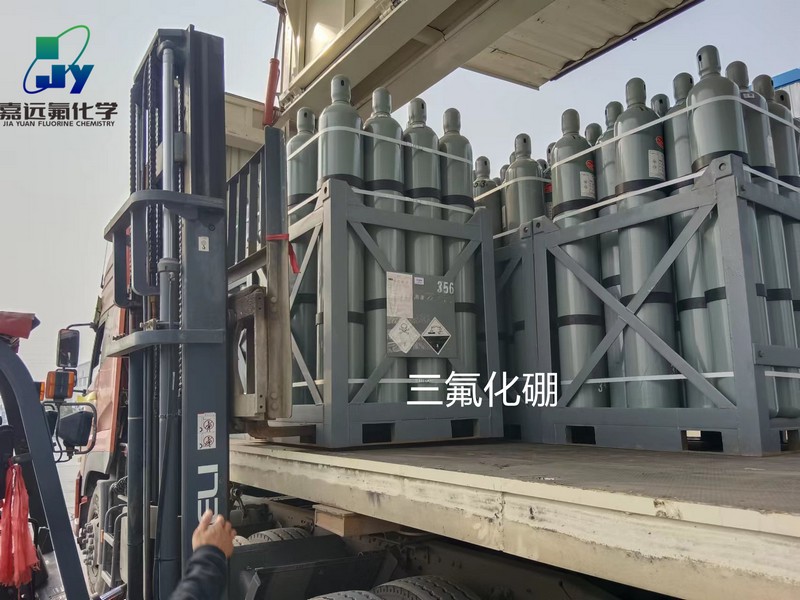



Special rare gas (containing fluorine) gas
Boron trifluoride
Domestic product consultation
0086-15366800998
Foreign Trade Hotline
0086-15366800998
Product Details
Molecular formula: BF3
Molecular weight: 67.80
GAS No.: 7637-07-2
Melting point: - 127 ℃
Boiling point: - 100 ℃
Flash point: 4 ℃
Water solubility: soluble in water
Product introduction
Under normal temperature and pressure, boron trichloride 11 (B11Cl3) is a colorless smokey gas, flammable, pungent and acidic odor. It decomposes into hydrogen chloride and boric acid when it meets water, and releases a lot of heat. It generates smoke due to hydrolysis in wet air, and decomposes into hydrochloric acid and boric acid ester in alcohol. Boron trichloride 11 has a strong reaction ability and can form a variety of coordination compounds. Boron trichloride can react with glass and ceramic ceramics when heated, and can also react with many organic substances to form various organoboron compounds. High-purity boron trichloride 11 is mainly used for diffusion doping in the manufacturing process of (silicon) semiconductor devices. At high temperature, boron impurities generated by decomposition diffuse into silicon to form P-type semiconductors. It can also be used for dry etching of Al, MoSi2, TaSi2, TiSi2, WSi and other materials.
Quality specification
| 项目Items | 单位Units | 指标Index |
| 三氯化硼11 Boron11 Trichloride≥ | Vol.% | 99.9995 |
| 氧+氩Oxygen+Argon< | Vol.ppm | 1 |
| 氮Nitrogen< | Vol.ppm | 4 |
| 一氧化碳Carbon monoxide< | Vol.ppm | 0.5 |
| 二氧化碳Carbon dioxide< | Vol.ppm | 0.2 |
| 甲烷Methane < | Vol.ppm | 0.5 |
| 总杂质含量Total impurity content≤ | Vol.ppm | 5 |
| 金属离子Metal ion | Vol.ppm | 供需双方商定 |
| Supply and demand agreement |
Application
High-purity boron trichloride 11 is mainly used in diffusion doping, ion implantation, dry etching and other processes in the manufacture of semiconductor devices and integrated circuits. Boron trichloride 11 can also be used to produce high-purity boron, catalysts for organic synthesis, fluxes for silicate decomposition, and additives for deoxidizers, nitrides and carbides in alloy refining.
Plant Evironment